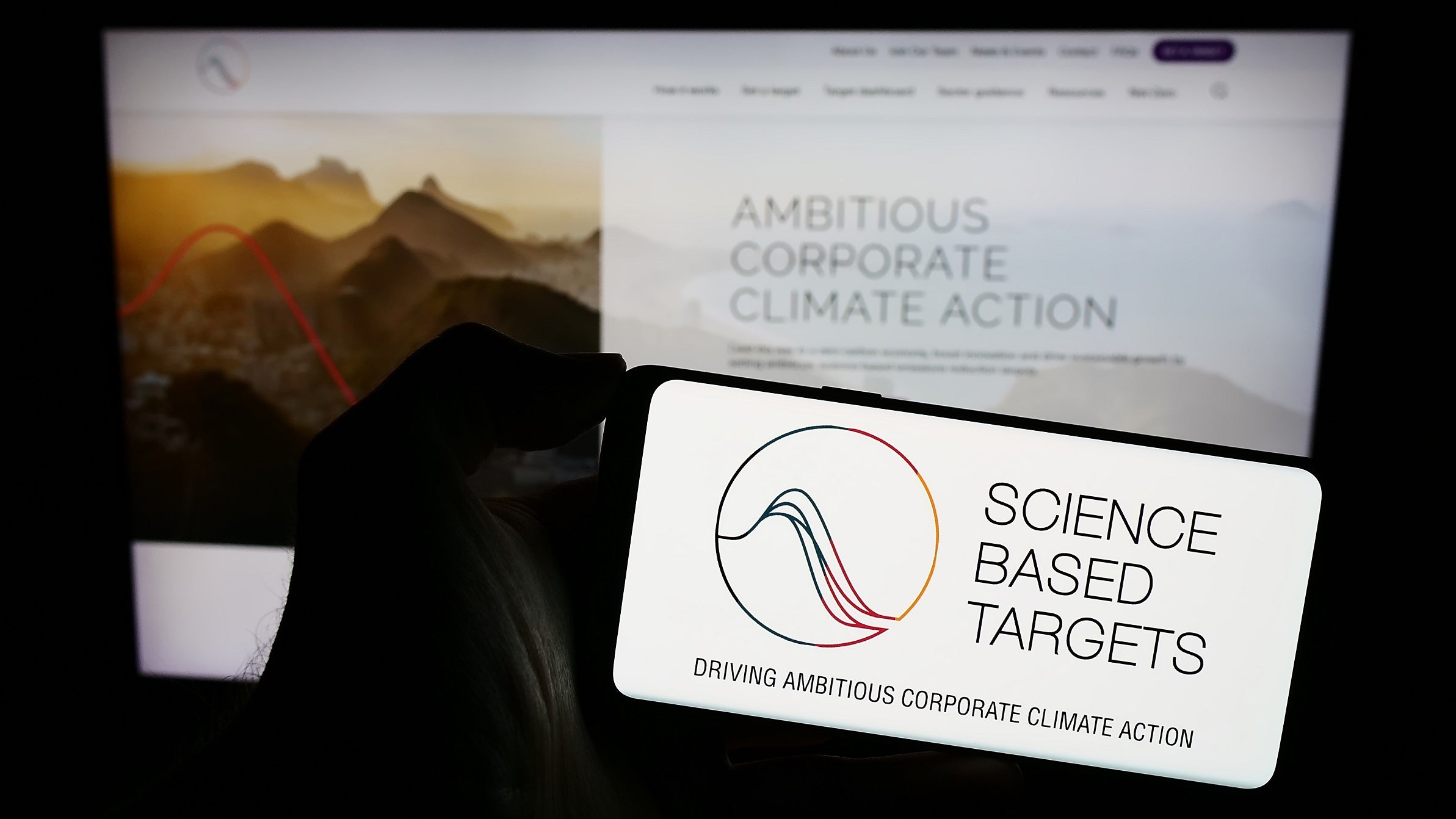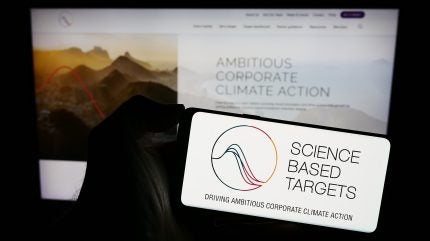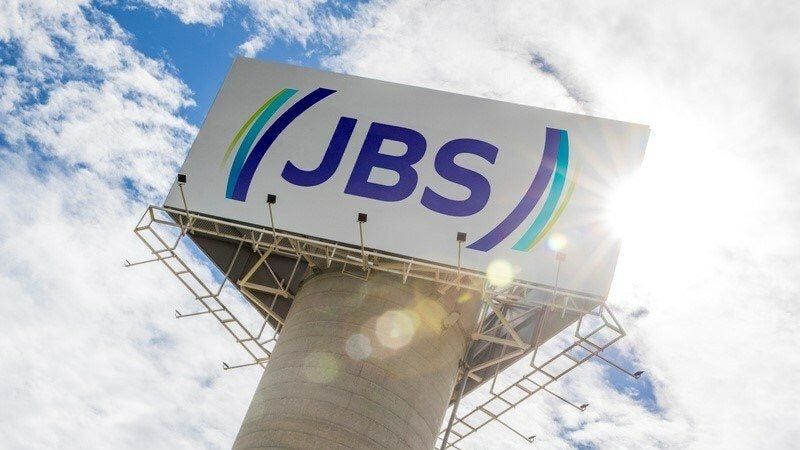

The Science-based Targets Initiative (SBTi), a corporate climate action organisation, enables businesses worldwide to play their part in combating the climate crisis. It’s become the go-to, gold standard for companies that want to set greenhouse gas emission reduction targets that align with the Paris Agreement and keep global heating below 1.5°C.
“The SBTi has been a fantastic success story in recent years in bringing shape, ambition, consistency and transparency to the world of corporate climate action,” wrote Mike Barry, an advisor on sustainable business and former head of Plan A at UK retailer Marks and Spencer, in April.
But his social media post came in response to some bad press for SBTi – arguably the first since the collaboration between CDP, the United Nations Global Compact, World Resources Institute (WRI) and the World Wide Fund for Nature (WWF) was launched in 2015. “I’ve spoken to a lot of people in the corporate world in recent days who are at best confused, at worst aghast about the uncertainty that this has caused,” Barry wrote.
‘This’ was a staff revolt that had left the whole institution “boiling”, according to the Financial Times. There were calls for the CEO, Luiz Fernando do Amaral, to resign following a controversial statement that appeared to upend SBTi’s decarbonisation-first approach.
“While recognising that there is an ongoing healthy debate on the subject matter, SBTi recognises that, when properly supported by policies, standards and procedures based on scientific evidence, the use of environmental attribute certificates [otherwise known as carbon credits or offsets] for abatement purposes on Scope 3 emissions could function as an additional tool to tackle climate change. Consequently, SBTi has decided to extend their use for the purpose of abatement of Scope 3 related emissions beyond the current limits.”
The message appeared to be: fill your boots with more carbon offsets if decarbonising is proving too tricky. Given the controversy surrounding carbon offsets, or credits – which has led to the EU intending to ban their use in making carbon-neutral claims – there was understandable uproar. And the SBTi found itself in unfamiliar territory: cast as the bad guy. “SBTi has been on an upward trajectory for a few years and this is the first thing that has gone wrong for them,” Barry tells Just Food.
Access the most comprehensive Company Profiles
on the market, powered by GlobalData. Save hours of research. Gain competitive edge.

Company Profile – free
sample
Your download email will arrive shortly
We are confident about the
unique
quality of our Company Profiles. However, we want you to make the most
beneficial
decision for your business, so we offer a free sample that you can download by
submitting the below form
By GlobalData
Unlucky for some
The reaction was swift, if not particularly slick: a statement two days later, on 13 April, noted the standards had not changed, with a draft of any new formal rules not planned until July. The controversy has stuttered along ever since. Later in April, the CEO published a statement on the institute’s website, trying to calm the storm.
“I acknowledge and deeply regret the concern and distress this situation has caused and want to reassure my SBTi colleagues and stakeholders that the SBTi’s dedication to science-based decarbonisation, public consultation and standard-setting governance is unwavering. The SBTi standards have not changed,” Amaral wrote.
However, as part of the revision of the corporate net-zero standard, his team is exploring changes to tackle the challenges that exist around Scope 3, including the use of carbon credits “with the right guardrails and limits”. A first draft paper will be published next month when there will be a call for evidence on offsets and a discussion paper on Scope 3 – the emissions that make up the lion’s share of food company footprints and are the trickiest to mitigate.
Indeed, this all blew up just a month after SBTi showed its teeth, with a move to ensure more transparency. The feedback from companies signed up and having their targets validated was that too many others were piggy-backing on the SBTi’s positive PR. “I see too many of my peers talking about their [science-based target] without having it validated,” said one company in a feedback report to the Business Ambition for 1.5°C campaign.
That campaign, aimed at driving the adoption of science-based targets in line with the most ambitious goal of the Paris Agreement, officially ended on 28 October 2021, and companies had until 31 January 2024 to set targets. However, instead of those not meeting the deadline simply vanishing from the dashboard as they have in the past, they remained there with the unwanted tag of ‘commitment removed’ alongside their entry. Those who then manage to have their targets validated after the deadline are marked as ‘targets set’.
Just Food analysis of the dashboard shows 22 of the 521 food and drink processing companies have had their near-term (five- to ten-year) commitment ‘removed’, including Brazilian meatpacking giant JBS, the Netherlands’ Farm Frites, beverage behemoth Tata Global and fresh meat company Linden Foods, based in Northern Ireland. JBS has also had its long-term commitment removed, as have 27 other food and drink processors, including Marfrig, Nomad Foods and Carlsberg.
Environmental NGOs naturally picked up on the bad news for some of the world’s biggest food and drink companies. “Barring JBS over its bogus climate claims shows that one of the world’s biggest climate polluters can’t use frameworks such as SBTi to greenwash its non-existent net-zero strategy,” explains Mighty Earth senior director Gemma Hoskins.
The likes of Amazon, Unilever and Walmart are among the other big names that had the unwanted moniker ‘commitment removed’ alongside their entry on the SBTi’s dashboard. Scope 3 was the main issue, according to an SBTi survey and report of the Business Ambition for 1.5°C campaign, though uncertainty levels were also high. The fact the net zero standard wasn’t published until the very end of the campaign was also high among the barriers companies said they faced.
Missed deadlines
Some big names in food have struggled with SBTi’s timelines. For example, Kraft Heinz in 2021 renewed its commitment to set a science-based emissions-reduction target by 2023, in alignment with the new SBTi net-zero standard. This still hasn’t happened. “We continue to work with SBTi and plan to launch our net-zero transition plan later this year,” a spokesperson tells Just Food.
In 2015, Kellanova (the snacks and international cereal arm of the former Kellogg Company) was one of the first companies to set science-based targets, yet it is still in the process of securing SBTi validation of its short- and long-term net-zero commitments. The company’s commitment to setting science-based, company-wide, emission reduction standards remains “steadfast”, a spokesperson says.
We currently do not have plans to submit targets using SBTi’s draft guidance.
a JBS spokesperson
The same can’t be said for JBS. “We currently do not have plans to submit targets using SBTi’s draft guidance,” explains a spokesperson, who highlights that “around 300” food and drink processing and retailers have had their SBTi commitments removed or expired in the update in April (which is about half the 600 or so in total across all sectors to be in a similar position).
JBS maintains its climate ambition “has not changed, we have and will continue to publicly disclose greenhouse gas inventories for all three scopes (as we have for the past 13 years), and we are continuing to take strong action across all scopes and regions”.
The issue for JBS, it seems, was the introduction of new requirements and draft methodologies for agriculture-based companies that “fundamentally altered the previous understandings between JBS and SBTi. [We] deliberately held off on submitting targets”, the spokesperson adds.
An analysis of 971 of the 1,045 companies who signed the business ambition 1.5°C, including a feedback survey, showed others also felt “this is going too fast and it feels like the rules are changed ‘during the game’”. SBTi points to those that have managed to adapt: “The introduction of FLAG [forest, land and agriculture] requirements have been challenging for some companies. However, retailers went on to successfully set targets at the highest rates,” it said.

Those in the forestry, agriculture, food processing and food retail sectors are offered more flexibility in compliance with SBTi’s net-zero standard. Reductions in absolute emissions in the shorter term tend to be around 3% a year, compared to 4% or 5% for other sectors, explains Chris Hocknell, director at Eight Versa, a UK-based consultancy.
He says the removal of major food companies from the SBTi’s net zero dashboard underscores the significant technical and economic challenges faced by the food sector in decarbonisation efforts. “It should be remembered that Unilever has been a textbook case study of a commercial giant that innovates in sustainability and leads the market; it has also been making structural decisions to successfully lower its environmental impact for over 15 years, and it still failed to comply with SBTi,” he adds.
Just Food’s analysis of the 521 food and drink processors on the dashboard shows 21 small and medium-sized companies, and 30 large, including JDE Peet’s, Nestlé and Danone, managed to have their short- and long-term targets verified within the timeframes (24 months after making the commitment).
A spokesperson for Danone says the SBTi “provides a robust framework and clear guidelines for setting science-based targets. By aligning with the business ambition for 1.5C, we were able to adopt a structured approach that ensures our targets are grounded in the latest climate science. This helped us establish ambitious yet achievable goals for reducing our greenhouse gas emissions.”
Most said they joined the campaign to showcase leadership (79%) and catalyse real action on decarbonisation (72%). Many also saw it as a PR opportunity (43%) and a chance to appease investors (45%).
More targets are likely to be verified in the coming weeks and months, as more firms get to grips with those Scope 3 calculations – and come to terms with the dramatic carbon reductions required throughout their supply chains. “Companies are welcome and encouraged to submit targets at any time,” says SBTi. “After their targets have been validated, companies which were listed as “commitment removed” on the dashboard will be marked as ‘targets set.”
SBTi has grown but it’s not a mature standard-setting organisation.
Peter Hajipieris, RRS Consulting
Our analysis of the 521 food and drink companies shows 321 (62%) have had their near-term targets validated. Only 51 of them (10%) have achieved this for their long-term net-zero targets too. This doesn’t concern experts too much: with 2030 just six years away it’s crucial companies focus on decarbonising right now.
Some 300 of the companies (58%) have committed to either near- (178 companies) or long-term targets (122 companies) but have yet to have these checked and verified. But, with so many short-term economic and geopolitical headwinds building, it won’t take much for some to use the SBTi’s (slightly) weakened position to soft peddle or even row back on their commitments, warn the likes of Barry.
Whether the recent shake to SBTi’s credibility has a lasting impact on corporate carbon commitments is not yet clear. There are definitely those who are disappointed in what’s happened: the problems weaken confidence in the already controversial landscape of decarbonisation. “SBTi has grown but it’s not a mature standard-setting organisation,” explains Peter Hajipieris, chief sustainability and reputation officer at RRS Consulting and former CSR director at Nomad Foods. “It’s only a year old as a charity.”
Carbon consequences
This all certainly represents a coming of age for the institution. The decisions SBTi makes are now consequential – and will at times be controversial, too. SBTi remains committed to “robust governance and won’t shy away from debate,” Amaral, the group’s CEO, said in a statement in April. From now on, it won’t have a choice. “It’s really important that they rapidly re-energise and build confidence in SBTi,” says Hajipieris, “because otherwise it just lends oxygen to those who don’t want to engage”.
Indeed, amid all the headlines, and the finger-pointing at companies missing deadlines to have their net-zero targets verified, it is easy to forget the thousands that are hiding in the shadows, having not yet started on science-based target-setting – let alone reducing their emissions in line with 1.5°C. Arguably, that remains the bigger scandal here.

